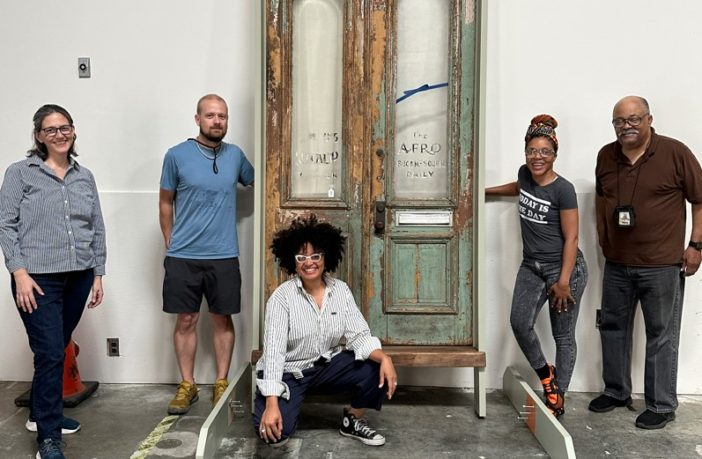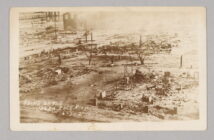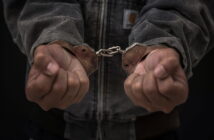By Helen Bezuneh,
Special to the AFRO
In the Jeffrey S. Evans and Associates auction house in Crawford, Va., the entire room sat on the edge of their seats as Dr. Frances Toni Draper, AFRO CEO and publisher, and Andre Draper, AFRO director of operations, placed their bids on behalf of Afro Charities during a fervent auction for historic AFRO doors on the morning of June 17.
The couple, married over 45 years, were determined to reclaim these doors, once an integral part of a historic AFRO building, now within the clutches of an auction house.
Tension filled the room as Dr. Draper and a few other participants emerged as the final bidders. When the bidding reached $4,000, and the other individuals withdrew, the doors’ fate was sealed: they would return to Afro Charities.
“It was exciting when they said our final bid,” said Dr. Draper. “They say it three times, it’s like ‘going once, going twice, going three times’, and if nobody says anything, then it’s sure. That was pretty exciting– to know that we had won the doors.”
The doors were once a part of a late 19th century building that would eventually serve as the shared offices for both the AFRO and the NAACP. The glass on the vintage-looking doors indeed include the titles “NAACP” and “ The AFRO.”
“Within the AFRO archives, there are letters documenting the relationship between the newspaper company and the NAACP,” said Savannah Wood, Executive Director of Afro Charities. “To have this physical representation of that relationship just makes it more visceral to understand that history that you can really encounter in person and face to face.”
The consignors of the doors were a family whose uncle, an avid collector of antiques who recently passed, originally got the doors at a salvage yard in Baltimore decades ago.
Afro Charities first got word of the auction in February when they received an email inquiry from an individual who sought photos of an old AFRO building to verify the authenticity of some doors soon to be up for auction. With no prior knowledge of the doors, Afro Charities promptly inquired about their origin. However, they were met with silence as the inquirer never responded.
A couple of months later, a mutual friend of Wood and Deyane Moses, Curator of Archives at Afro Charities, reached out and informed them that some AFRO doors were up for auction in Mt. Crawford, Va. Afro Charities then started considering whether they should bid on the doors.
“We tried to authenticate and get some images first so we could physically see them,” said Moses, “along with trying to locate the doors and see if we had the amount of money to purchase them because this would be a new acquisition for Afro Charities. So our director had to consult with our board, as well as with the AFRO, to have these conversations.”
Once they decided the doors were in their budget, they prepared to send Dr. Draper and Mr. Draper to the auction. Those at Afro Charities, however, weren’t the only ones interested in making the purchase. Several people understood the doors’ historical value and sought to obtain them––however, many backed off from the auction once they learned that Afro Charities was trying to purchase them, Moses said.
The Drapers drove almost three hours through rural farmlands before arriving at the Jeffrey S. Evans & Associates auction house the day before the auction.
“We arrived on a Friday right before the auction house was ready to close,” Dr. Draper said. “So we had a chance to preview the doors and talk to some of the people who work at the auction house and let them know that we would be back on Saturday to find out a little bit more about the [auction]process and how it works. So we had a chance to sit and watch other things being auctioned and to try to understand the auctioneer, who spoke so fast.”
When it came time for the bidding of the doors, The Drapers proudly wore their AFRO t-shirts to showcase their mission. During the auction, there were people bidding in person, on the phone, and on the computer.
Once the Drapers successfully outbid the other participants, the room erupted in cheers. Moses and Wood were ecstatic once they heard the news.
“It’s really exciting,” said Wood. “On one hand, it’s kind of discouraging that these materials are out and up for bid in this way and that we had to purchase them to get them back. It would’ve been great if the folks who were auctioning them would’ve been willing to make a donation to Afro Charities to be able to preserve these doors and share them at our new location at the Upton Mansion. But at the same time I’m glad that we were the ones that were able to bring this home.”
The doors were then driven and hand-delivered back to Baltimore, “where they belong,” Moses said.
“We were excited,” Moses remarked. “We were jumping up and down, so happy that we had the doors. We didn’t think it was gonna work out. We thought maybe somebody might wanna outbid us. But I think that, with everything that’s going on right now, thinking about cultural heritage and obtaining property that necessarily doesn’t belong to you, I really wish that the person who had…reached out to us initially about authenticating the doors and images of the old building had written me back so maybe we didn’t have to [go to]auction.”
The doors are now at the Maryland State Archives, where they await conservation efforts. Afro Charities is not looking to do a full restoration of the doors, but rather plans to assess their condition and “stabilize” them. This would involve some slight fixes, including repairing some chipped-off paint and unstable glass.
Afro Charities looks forward to putting the doors on display in the Upton Mansion, the new home for their headquarters and the AFRO archives. Whether it’s a permanent display or an exhibition, Afro Charities plans to give the local community a chance to see the treasured doors.
“You know the saying that says ‘one man’s trash is another man’s treasure’ or ‘one woman’s trash is another woman’s treasure’,” said Dr. Draper. “I think [the doors]help us appreciate the history and appreciate the struggle. They help us document some things that we may have only heard about or read about…especially at this time when there is a debate about African American history and the need to teach it. The doors say that [African Americans] had buildings that we owned, that we had businesses that we owned.”
Help us Continue to tell OUR Story and join the AFRO family as a member –subscribers are now members! Join here!



